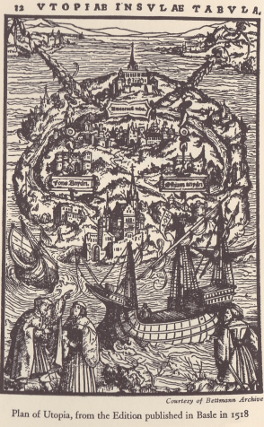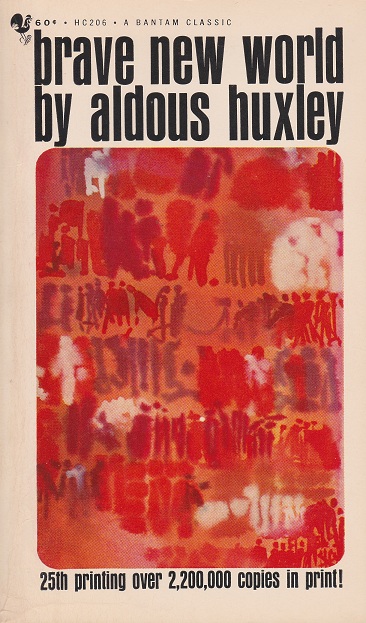I recently read the book ‘Utopia’ by a Sir Thomas More. I knew nothing about More, but the book found its way into my collection through inheritance and I wasn’t going to discard it until I had read it. By trade More was a prosperous civil servant in the early to mid 1500’s. Favored by King Henry VIII until the year of Mores execution, he rose all the way to the position of Lord Chancellor. Utopia is an invented word from Greek, roughly meaning ‘nowhere land’ that More coined. Not surprisingly, the utopia described by More is a very basic version of those written about by more modern social reformers. In it everyone wears a common dress save for some community leaders and bondsmen. Everyone is well educated and does their share of work. The sick and elderly are cared for. There are no real personal possessions but only community goods. Utopia is an island that has geography such that there is essentially no hope of foreigners attacking and taking over the land (In case you haven’t caught on, things are pretty uncommonly swell in Utopia). There are some interesting rules in Utopia. If you cheat on your spouse multiple times you are eventually put to death. Only bondsmen are allowed to butcher animals. If at all possible mercenaries are paid to fight wars instead of risking citizens. Very lucrative bounties are offered for the lives of ranking enemy officers and princes to incite unrest with the enemy.
Utopia is a response to the social issues of England in the time it was written, such as large segregation of wealth and the longstanding practice of punishing thievery by death. More biography was written by his stepson, Roper. The biography describes More as religiously pious, joyful and very loyal to his king and country. His downfall was ultimately being more pious than patriotic. When Henry VIII declared himself the head of the church in England, More refused to take on oath accepting this. More strongly believed the segregation of the Catholic church to be one of the worse things that could happen to it. He was very civil in his refusal to accept the King as head of the church, continually stating that his opinion in the matter was nothing but his own, and those of everyone else was their own. However it seemed his opinion was historically too highly regarded for the King to take this ambiguous response as acceptable. He was held in ‘The Tower’ a few months before his beheading on July 6th 1535, the Octave of St. Peter (eighth day of St. Peters festival). Roper quotes him as stating to his executioner, “Pluck up thy spirits, man, and be not afraid to do thine office” as well as giving one gold angel (a coin of no small worth) to his executioner.
It was a refreshing read of an era I knew little of, and a nice background to have for reading more modern Utopian philosophies. Also an interesting casualty of the fragmentation of the Catholic Church.

